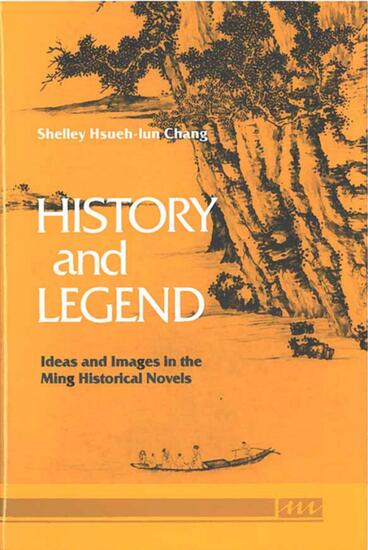History and Legend
Ideas and Images in the Ming Historical Novels
The first study of the Ming historical novels written from a historian's perspective
Description
History, according to the Confucian tradition, was a “comprehensive mirror” for aid in government: it was part of the great Way (ta-tao), the tradition of the governing elite. Fiction, which was originally referred to as “the talk of the streets,” belonged to the small Way (hsia-tao), the tradition of the governed masses. In History and Legend: Ideas and Images in the Ming Historical Novels, Shelly Hsueh-Iun Chang maintains that the historical novels blended legends with historical fact, making them a medium of interplay between the elite and popular traditions.
This combination of influences in the historical novels was especially significant during the Ming dynasty because of the rise of both urban culture of great refinement and diversity and a popularizing vernacular designed to promote learning among all people. These two exuberant movements came together in the historical novel to propagate the difficult and complex Official Histories of the governing elite, as well as to adapt unofficial histories and fictitious narratives, thus opening the way to the influence of the common people in literature.
This book is the first study of the novels from a historical standpoint. Combining traditional historical research with new source material of the historical novels and with analytical strategies, Chang creates a three-dimensional picture of the “historical world” of the Ming people. Chang compares issues of the dynastic cycle and political legitimacy of a regime, human ambitions and immortality, ethics in the relations between historical personages and legendary heroes, ideals of government and grandiose imperial institutions, and supernatural power and the justice of history that emerged from the historical novels with those in the Official Histories and Confucian canon.

